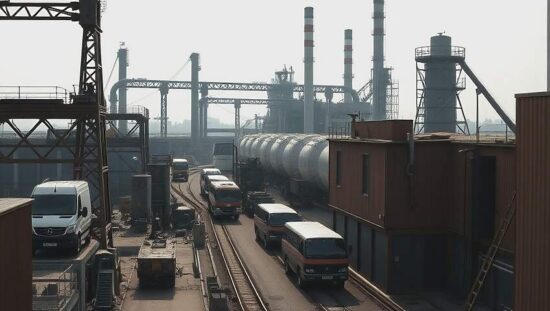The German steel industry finds itself at a critical juncture, according to the IG Metall trade union, demanding immediate and substantial political intervention to avert a potential collapse of a foundational German industrial sector. A recent meeting between IG Metall representatives, including regional leader Thorsten Gröger and Lower Saxony’s Minister-President Olaf Lies underscored the urgency of the situation, highlighting the precarious balance between maintaining production and weathering a confluence of pressures.
Gröger articulated a stark warning, emphasizing that steel production is not merely another industry segment but the bedrock of Germany’s industrial value creation. He cautioned that without resolute industrial policy support, Germany risks losing its industrial heart, a scenario with cascading consequences for national economic stability and employment. The current crisis, he stated, stems from a lethal combination of escalating energy prices, unrelenting international competition and a stalled, underfunded transformation process towards greener production methods.
Minister-President Lies echoed the concerns, calling for “clear political decisions” aimed at providing immediate relief and long-term security for the steel sector. Specific demands included the implementation of effective trade protection measures, leveling the playing field through a carbon border adjustment mechanism and ensuring competitively priced energy. The absence of these provisions, Lies warned, threatens to render German steel producers uncompetitive on the global stage.
IG Metall’s ultimatum focuses intently on energy costs. The union is explicitly calling for a permanently fixed electricity price of just five cents per kilowatt-hour, alongside the rapid development of a hydrogen infrastructure-a cornerstone of future decarbonization efforts. This demand, while substantial, is seen as pivotal to restoring the industry’s viability.
With the impending steel summit convened by the federal government looming, Manuel Bloemers, a member of the IG Metall executive board, is pushing for legally binding commitments, not just vague promises. These obligations, he insists, are crucial for providing the industry with planning certainty and establishing robust social safety nets for the workforce navigating a period of profound uncertainty and potential restructuring. The summit’s outcome will be a bellwether for Germany’s commitment to safeguarding a critical element of its industrial base, or allowing it to fade into economic decline.





